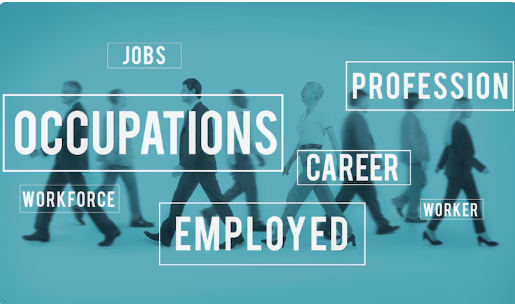Managing a Career Transition
Counsellor / Parenting Coach / Career Coach
Managing a Career Transition
Navigating a career transition? You’re not alone. Whether you're switching industries, stepping into a new role, or facing an unexpected job change, career transitions can be emotionally and mentally demanding. More than a resume update, this journey requires self-reflection, resilience, and support. In this guide, Counsellor & Career Coach, Paula Brunning, share research-backed strategies to help you manage stress, stay grounded, and thrive through professional change—while preserving your wellbeing along the way.
-
A: A career transition refers to any significant change in one’s professional life—such as switching industries, roles, or work environments. It may be voluntary or involuntary and often includes emotional, mental, and practical challenges.
-
A: Career transitions involve uncertainty, loss of identity, and fear of the unknown. These changes can trigger anxiety, self-doubt, and stress, especially if expectations are not well-managed or emotional support is lacking.
-
A: Start by acknowledging your emotions without judgment. Build a support system, practice mindfulness, manage your energy, and seek professional help if needed. Emotional resilience is key to successful transitions.Description text goes here
-
A: Break down goals, manage expectations, stay adaptable, maintain self-care, and lean into reflection. Seeking support from a therapist or career coach can also provide valuable clarity and coping tools.
Career transitions - whether voluntary or involuntary - are among the most challenging periods in a person’s professional life. Changing industries, roles, or even work environments brings a unique mix of practical and emotional challenges. It’s not just about updating your resume or learning new skills; it’s about managing your expectations, maintaining your mental health, and preserving your energy during a period of significant change.
For those experiencing a career transition, understanding and addressing the emotional, mental, and physical aspects of this process is crucial for a successful and healthy adjustment. This blog post is grounded in research and provides some actionable strategies to help you navigate this journey with resilience and confidence.
The Essential First Step: Acknowledge and Understand the Emotional Landscape
Career transitions often evoke a complex mix of emotions – grief, anxiety, fear, excitement. Recognizing these feelings as a normal part of the process is the first step toward managing them effectively. Noticing and acknowledging the losses is an important foundation for embracing the upcoming opportunities with a healthy mindset.
Research Insight:
Studies in the Journal of Organizational Behavior show that emotions play a significant role in how individuals cope with career transitions. The process typically involves an initial “shock” phase, followed by “adjustment” and eventual “adaptation”. Understanding these stages can help you respond more effectively to the ups and downs of transition.
Action Steps:
Self-Awareness:
Take time to reflect on your feelings. Journaling or speaking with a psychologist, counselor, or psychotherapist can help you process emotions and identify your unique range of excitement, fear, grief or other feelings.
Emotional Validation:
Accept that a wide range of emotions is part of any major life change. Allowing yourself to feel without judgment can reduce frustration and confusion.
Essential Step Two: Set Realistic Personal Expectations
Transitions often create a gap between where you are and where you want to be. Unrealistic expectations can lead to disappointment and burnout if not managed carefully.
Research Insight:
The Journal of Vocational Behavior reports that individuals with unrealistic expectations during career transitions are more likely to experience dissatisfaction and burnout. Setting goals that reflect your current skills and the realities of your new role can help reduce unnecessary stress.
Action Steps:
Break It Down:
Focus on smaller, actionable steps rather than viewing the transition as one giant leap. What are the actions in stepping away? What are the preparation steps for moving forward?
Set SMART Goals:
Ensure your goals are Specific, Measurable, Achievable, Relevant, and Time-bound. Realising that time and energy will be at a premium, establish goal priorities and set your sights on being well alongside professional outcomes.
Essential Step Three: Build a Support System
A strong support system is vital during career transitions. Leaning on friends, family, mentors, or professional networks provides comfort, perspective, and practical help.
Research Insight:
Studies in the American Journal of Community Psychology and systematic reviews highlight that social support that offers emotional, informational, and instrumental support reduces stress and increases well-being during career transitions.
Social support is especially critical for those experiencing isolation or self-doubt.
Action Steps:
Lean on Your Network:
Regularly engage with friends, family, or professional contacts. Share your journey and seek their advice.
Professional Support:
Consider working with a counselor or career coach. These professionals can offer objective guidance and help you refine your goals and strategies.
Essential Step Four: Focus on Energy Management
Career transitions can be exhausting - mentally, physically, and emotionally. Balancing job searches, networking, and skill-building can lead to burnout if not managed well.
Research Insight:
Research in the Journal of Applied Psychology finds that individuals who manage their energy (not just their time) are more productive and less stressed.
Prioritizing rest and rejuvenation is essential for sustaining momentum during transitions. Asking yourself if you have rested enough to be at your best is a way to shift thinking and behaviour to maximise energy management.
Action Steps:
Practice Time and Energy Management:
Plan your day to include both work-related tasks and self-care. Take regular breaks and avoid overloading yourself.
Prioritize Rest:
Ensure adequate sleep and downtime. Sleep deprivation impairs decision-making and emotional stability, both of which are crucial during transitions.
Essential Step Five: Cultivate Resilience Through Reflective Practices
Reflection is a quietly powerful way to learn and grow through challenges, developing the resilience through noticing, self-assessing, processing and releasing unneeded or irrelevant information. Tools for reflective practice include mindfulness and meditation, strengthening the ability to manage the stress and uncertainty of career change. They help you stay present, regulate emotions, which build your resilience toolkit.
Research Insight:
Studies in Psychological Science demonstrate that mindfulness reduces stress, improves focus, and fosters emotional regulation - key assets during career transitions.
Action Steps:
Meditation and Deep Breathing:
Incorporate short mindfulness exercises into your routine. Even a few minutes of deep breathing or guided meditation can reset your emotional state.
Mindful Acceptance:
Observe your emotions without judgment. This practice can lead to greater clarity and better decision-making.
Essential Step Six: Stay Flexible and Adaptable
Adaptability is a critical success factor during career transitions. Being open to new environments, challenges, and opportunities allows you to thrive, even amid uncertainty.
Research Insight:
Reports from the Harvard Business Review and systematic literature reviews highlight adaptability as a key predictor of successful transitions. Embracing uncertainty and learning from setbacks fosters growth and resilience. Linked with cultivating resilience through mindfulness, an adaptable mindset avoids judgement and seeks a curious, possibility focused way of thinking.
Action Steps:
Embrace Learning Opportunities:
View the transition as a period of growth. Be open to upskilling and new experiences.
Reframe Setbacks:
Treat challenges as learning opportunities rather than failures. Every obstacle is a chance to adjust and improve.
Essential Step Seven: Take Care of Your Mental Health
Career transitions can trigger or exacerbate mental health issues such as anxiety, depression, and stress. Proactively supporting your mental health is essential.
Research Insight:
The American Psychological Association reports that 60% of employees feel stressed during career changes. If unmanaged, this stress can lead to more serious mental health concerns.
Action Steps:
Seek Professional Help:
Be proactive when possible. Before or when you feel overwhelmed, reach out to a counselor or therapist. Professional support can help you develop coping strategies and manage anxiety or depression.
Practice Positive Self-Talk:
Counter self-criticism with affirmations and reminders that career changes are a challenging and new situations always stretch our skillset. See this as a normal part of professional growth.
Career Transition Is a Process, Embrace the Journey
Career transitions are opportunities for both professional and personal growth. By acknowledging your emotions, setting realistic expectations, building a support system, managing your energy, practicing mindfulness, staying adaptable, and prioritizing mental health, you can navigate this process with resilience and confidence. Remember, as a journey, your career transition is not a sprint. With the right tools, support, and mindset, you can transform this period of change into a stepping stone toward a very fulfilling and balanced life.
You don’t have to face change alone. Whether you’re exploring a new path or processing the emotions of job loss, talking to a professional can help you gain clarity and resilience. Book a Career Support Session with me.





